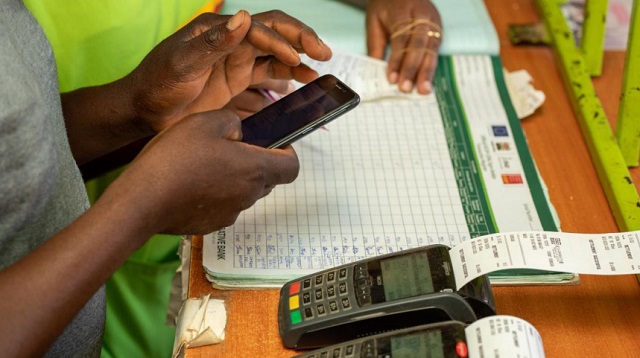
Remittance inflows to Uganda stood at US$1.08 billion in 2021
Kampala, Uganda | RONALD MUSOKE | Uganda’s rural population will now be able to access key financial services through a new mobile application known as PostalPay.
The app developed by cross border payment companies –Inpay and Eurogiro – in collaboration with PostBank, Posta Uganda and the UN’s International Fund for Agricultural Development (IFAD), will make the cost of sending money from Europe to Uganda four times cheaper.
The innovation is expected to help generate substantial savings from migrant workers and their families in rural Uganda as cash can be instantly transferred to a PostBank bank account or received as a cash pick-up in multiple Posta Uganda and PostBank Uganda locations.
“By using our cross-border payment technology, we are cutting the total costs of remittances to 2.5%, helping migrant workers get a fairer service and helping us in our mission of democratizing payments in every corner of the world,” said Thomas Jul, the CEO of Inpay and Eurogiro in a statement shared by IFAD on Oct.24.
“We are incredibly grateful for the cooperation with IFAD, the EU and our partners in Uganda in this joint project. We look forward to working with local members of the Ugandan community in the Netherlands and Sweden to further support app uptake.”
“PostBank and Posta Uganda wide outreach through their branches makes picking up cash far more convenient for recipients in Uganda; we also believe that the trusted name of the Post and Bank will help foster market adoption,” Jul added.
IFAD has supported the initiative with a grant of €369,000(Approx. Shs 1.4 billion) to launch ‘PostalPay’ in Sweden and the Netherlands— two European countries with an established Ugandan diaspora.
IFAD’s contribution is part of the Platform for Remittances, Investments and Migrants’ Entrepreneurship in Africa (PRIME) programme, a project co-financed by the European Union with additional support from the government of Luxembourg. Meanwhile Inpay and Eurogiro are jointly contributing €172,000 (Approx. Shs 660 million) to co-finance this venture over the next 18 months.
“We are delighted to work with Inpay and Eurogiro to promote financial inclusion in marginal rural areas. Facilitating people’s access to savings and credit will help them to participate in the rural economy and improve their livelihoods,” said Pedro de Vasconcelos, the manager of the Financing Facility for Remittances at IFAD.
“Inpay technology provides low-cost and secure cross border payments and Eurogiro’s access to the global postal network makes it a valuable partner,” he said.
The partnership builds upon a previous IFAD grant to Postbank Uganda (PBU) and Posta Uganda between 2017 and 2020 which helped extend financial services, including remittances, to rural and refugee communities, and supported the refurbishment of 30 post offices, opened new mobile branches, and procured mobile cash management vans in rural areas.
Remittances a lifeline for Ugandans
Remittances from abroad remain a lifeline for millions of Ugandan households. In fact, Uganda ranks in the top 10 of remittance recipient countries of sub-Saharan Africa. Last year, the remittance flows to Uganda (US$1.08 billion) represented almost 3% of national GDP.
“These remittances are a lifeline for rural people. However, the cost of sending money to Uganda is still far above the SDG target 10.c of reducing the cost of migrants’ remittances to less than 3% by 2030. “Mobile channels offer a great opportunity to achieve this goal,” added De Vasconcelos.
However, at the moment, money can take days to be delivered and costs exceed 10% of the amount sent, including the foreign exchange margin, adding unnecessary strain and cost on migrant workers and family members back home.
IFAD’s support to the Ugandan diaspora comes at a time when the UN agency whose mandate is to invest in rural people and empower them to reduce poverty, increase food security, nutrition and strengthen their resilience has been working hard to harness the benefits of mobile channels that are used to send and receive remittances.
Last month, IFAD announced its first grant to a digital payments company, MFS Africa, to promote the use of mobile remittances in marginal rural areas in five African countries: Ghana, Kenya, Senegal, The Gambia and Uganda.
Through this IFAD grant, MFS Africa will enable their payments hub partners [money transfer operators in European ‘sending’ countries, and mobile network operators in African ‘receiving’ countries] to directly send money through mobile wallets in selected African receiving countries, focusing on rural beneficiaries.
Mobile remittances – the money that migrant workers sent home through digital channels using mobile technology – can play a catalytic role linking individuals and businesses to the formal economy, while providing access to key financial products and services such as transactions, credit, insurance, payments or savings that can boost their own social and economic wellbeing.
Mobile remittances are expected to grow in the coming years and promise to lead a much bigger and impactful digital revolution in Africa as long as women and rural people are part of it.
****
 The Independent Uganda: You get the Truth we Pay the Price
The Independent Uganda: You get the Truth we Pay the Price



